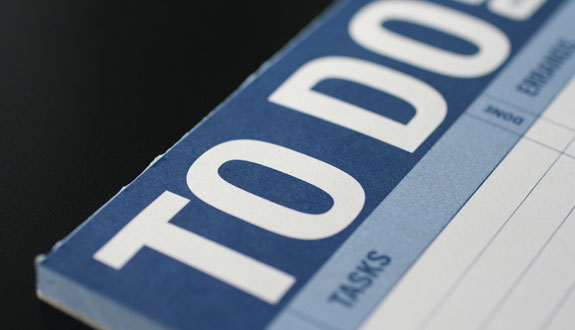
It’s amazing how fast they grow up. They, of course, being new LSATs. This Monday, July 23, LSAC will, like a shamanic baboon lifting a newborn lion cub above its head, unveil the brand new July LSAT. It’s hard to believe this moment has arrived already.
I mean, I can remember the announcement heralding the birth of July LSAT like it was yesterday. A new LSAT, to care for and prepare for! And then there was the pandemonium at our offices, where this news led to more than a little agita. I can still hear the hysterical screams of colleagues and smell the burning refuge of old logic games books, as the entire office was thrown into riotous panic following the news. Before, you know, we realized that we should probably just hold some classes to help students prep for this new exam.
It seems as though we just found out that this July test wouldn’t be disclosed. And I’m still not over the bait-and-switch LSAC put us all through, when at first it seemed like LSAC would wantonly force July test takers to make the decision to sign up for the September test immediately after the test, before smoothing this over by announcing a policy that July test takers who signed up for September would get a full refund of their September fee if they decided they didn’t need to take the LSAT again after receiving their scores (the deadline to sign up for the September test is still Monday, fyi).
And yet, after all the twists and turns that we’ve tracked as LSAC has shepherded this new exam into existence, it will be administered this Monday. So, as is our custom, we want to make some predictions for this July exam. Since we’ve known about this exam for so long — ever since it was just a glimmer in LSAC CEO Kellye Testy’s eye — we feel pretty confident about these predictions. In fact, what follows are the most specific, sure-to-be accurate* predictions we’ve ever made. So just trust us**, this is what you’re going to see on Monday’s exam, down to the last exacting detail***.
*This is in no way a guarantee of these prediction’s accuracy. As you’ll soon realize by the predictions themselves.
**…at your own peril. I’m wrong about a lot of things. Here are some of the garbage takes I’ve vociferously argued, over the past year, just to show how wrong I can be: french fries are bad; texting while driving is OK, provided you leave a safe distance between you and the car in front of you; this was the Raptors’ year; A/C is wasteful and unnecessary; tea is just coffee for people with weak constitutions; bum bags are both fashionable and functional; LeBron James would be welcomed by all Lakers fans, with open arms; it’s indeed coming home; people are over superhero movies, so the Avengers and Black Panther and Ant-Man would flop at the box office.
***…or not.
Logical Reasoning
I’m prepared to make a prediction, with mathematical certainty, of how many questions there’s going to be of each question type in Logical Reasoning. You ready? All right, let’s go …
From the Implication family, there’s going to be two Must Be True questions, and five Soft Must Be True questions. The Must Be False question is nearly, but not completely, dead, so I’m thinking one of those is going to be unearthed as well.
From the Characterization family, there will certainly be one Main Point, one Describe, and one Role question, and eight Flaw questions (two of which will indubitably commit exclusivity fallacies, two of which will err in the comparison they make, one will equivocate, one will mistake correlation for causation and another will equate sufficiency with necessity, and one will confuse absence of evidence for evidence of absence). As per usual, there will be two Parallel and two Parallel Flaw questions. They’ll pump the brakes a little on Disagree questions, with only two of those.
From the Operation question, there will definitely be nine Strengthen questions, exactly three of which will be Strengthen Principle questions. Facts and logic dictate that there will be four Weaken questions, one Crux question, two Sufficient questions, and five Necessary questions. Finally, there will three Resolve questions and but one Explain question.
There is literally no other possible distribution of questions.
Reading Comprehension
For Reading Comp, we’ll get the usual topics. As on most LSATs of recent vintage, you can expect a passage on science, one on the law, and one on the social sciences or some related field. And then you get a wild one. I’m thinking this year, the wild card is going to be on the arts — we haven’t seen too many of those recently.
The first passage will surely be an antithesis passage on the semiotics of the sign language used by the dearly departed Koko the Gorilla. One side — the good and noble side — will argue that Koko really did develop a system of sign language, and that she would create her own words and sometimes even make jokes. The other side — the side of the joyless and curmudgeonly — will argue that she was merely responding to human cues, had little understanding of what her signs communicated, and could only communicate via liberal human interpretation. Hopefully, there will time for stories about when Koko met her hero, Mr. Rogers.
For the second passage, I’m seeing a synthesis passage about the arts — in fact, I know it will be a meditation on Italo disco, the much-maligned dance music genre from the late 70s and early 80s. We’ll hear from skeptics, who will argue that this genre was merely a crass, cheaply-produced cash-in on disco’s popularity. They will cite the cheesiness of the analog synthesizers and dated drum machines favored by Italo produces. The proponents will instead refer to the genre’s creative use of primitive recording technology, and cite its influence on house music and its many derivatives. The author will synthesize these two views, arguing that Italo disco is appealing precisely because it is cheesy and disposable. This will likely be supported with an example, like, say Klein & MBO’s “Dirty Talk,” which is either sleek or preposterously corny, depending on whether the vocals are present.
I can confidently assert that the third passage will be the comparative passage, and like so many recent comparative passages, this will be about the law. Specifically, I’m thinking one passage will be a very general discussion of legal theory behind the First Amendment — how it was intended to open up channels of communication between the people and the federal government, so citizens to petition the government and find redress to their problems — and why the Amendment is skeptical of attempts to sever citizens’ line of communication with the government. This will be contrasted with a passage about Donald Trump’s Twitter, in which he blocks users like he’s Dikembe Mutombo in 1995.
Finally, the fourth passage will be our science passage. And it’ll be the hardest passage of the lot, despite its focus on the softest voices on the internet — those who make ASMR videos on YouTube. The passage will discuss how whispered voices and soft, continuous sounds create the namesake autonomous sensory meridian response, which reportedly provokes an auditory-tactile synesthesia — in layman’s terms, a tingly sensation — in respondents. Like many science-based passages, it’ll use technical jargon to confuse test takers, but it’ll mostly discuss an alleged cause-and-effect relationship, so just understanding that relationship will lead to a relaxing time, without the accompanying creepy feeling actual ASMR videos produce.
Logic Games
Take it to the bank: you’re getting a 1:1 ordering game, a tiered ordering game, an unstable grouping game, and a combo game. Once at the bank, the teller will — after giving you a quizzical and maybe concerned look — tell you that you cannot deposit this information, as it is non-monetary in nature. But at least you’ll be made rich with knowledge.
In a semi-clever twist, the first game will be a 1:1 ordering game about literally getting your ducks in a row. You’ll be creating a row of ducks — Daffy, Donald, Baby Heuy, Howard the, Scrooge Mc-, Joshua Jackson’s character in the Mighty Ducks series, and the AFLAC duck — in seven positions, numbered one to seven. I’m hearing this game will dust off the “or … but not both” rule, which you should use to make scenarios.
The second game will undoubtedly be an unstable grouping game. Inspired by the whirlwind NBA free agency, this game will involve six or seven superstar players joining three various teams. However, you won’t know how many players sign contracts each team. There will likely be a pair of players that must join the same team, leading two some helpful scenarios.
The third game, and I say this with great conviction, will be a tiered ordering game. It’ll involve a rap producer trying to sequence tracks for a mixtape — which the LSAT will call, with all the awkwardness of a middle-aged teacher trying to seem “cool” to his students, a “hip-hop music songwriter and producer, who is trying to determine the exact order of each song for his forthcoming rap CD.” Anyway, you’ll be given six songs, but each song will contain either a sample from an obscure soul song, a guest verse from a burgeoning rapper, or an R&B hook, which can be sung by either SZA or Kehlani. The only thing harder than the bars on this mixtape will be questions — expect the “substitute a rule question” to show up on this one.
The final game will combine both grouping and ordering. It’ll focus on a topic you probably have intimate familiarity with: binge-watching shows. You’ll be told that someone will select five of eight shows to watch, and then will watch each show, one at a time. The shows will have ridiculous titles that allude to popular shows. I’m thinking: American Scandal, Bajillions, Creepy Computers, Dragon Wars, Prison Gals!, Rich and Marty, Spooky Happenings, and Teenage Girl Scavenger Hunt. There will probably be a rule that’s sneaky good for scenarios — like one that says we must select exactly two of Dragon Wars, Prison Gals!, and Spooky Happenings.
Conclusion
And that’s it. As long as you know these very specific things, you’ll be good!
…
…
…
…I suppose I must countenance the small possibility that at least some of these predictions are off base. We can’t be right all the time. But you know what? Even if some of these predictions don’t hold true, I think you’ll be fine.
If you have the basics down, there’s really no reason to get worried about what will be on the test. You have the skills, and no matter what crazy topics they throw at you, you’ll be able to apply them to great success. So if you know how to diagram conditional statements, and use them to make deductions, you’ll handle those questions with aplomb. If you’re familiar with all the common fallacies, and recognize them on not only Flaw questions, but also all the Operation questions, you’ll rack up more point than you know what to do with. Can you recognize causal relationships, and do you know how to strengthen and weaken them? You’ll see a lot of those, and you’ll earn a ton of points. Can you identify the author’s attitude in a Reading Comprehension passage? Are you able to set up both ordering and grouping games, and do you know when to make scenarios in each of those? Then you will adroitly progress through the RC and LG sections, regardless of whatever crazy topic or game type appears.
If the above conditions are met, then here is my one, totally accurate, unassailable prediction: You’re going to crush it on Monday.
Oh, and the curve is going to be -11. Feeling good about that one, too.




